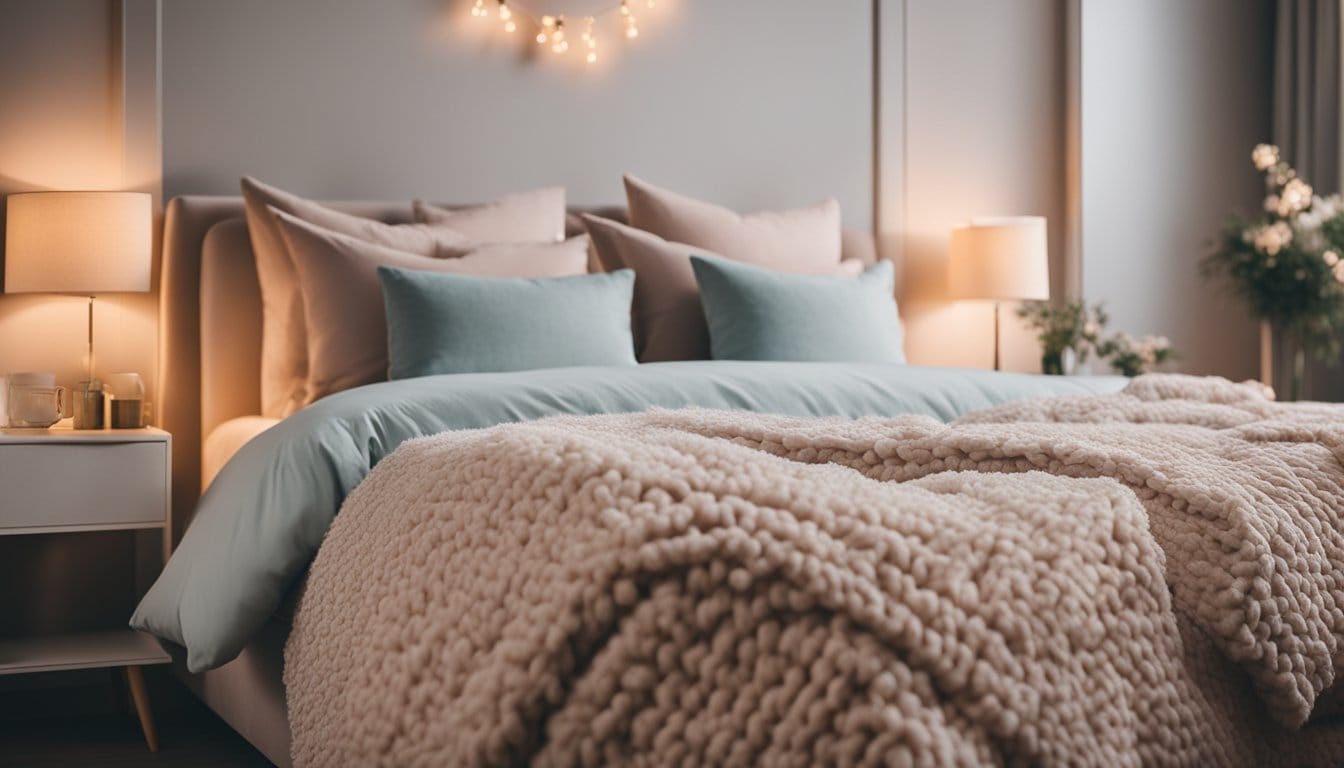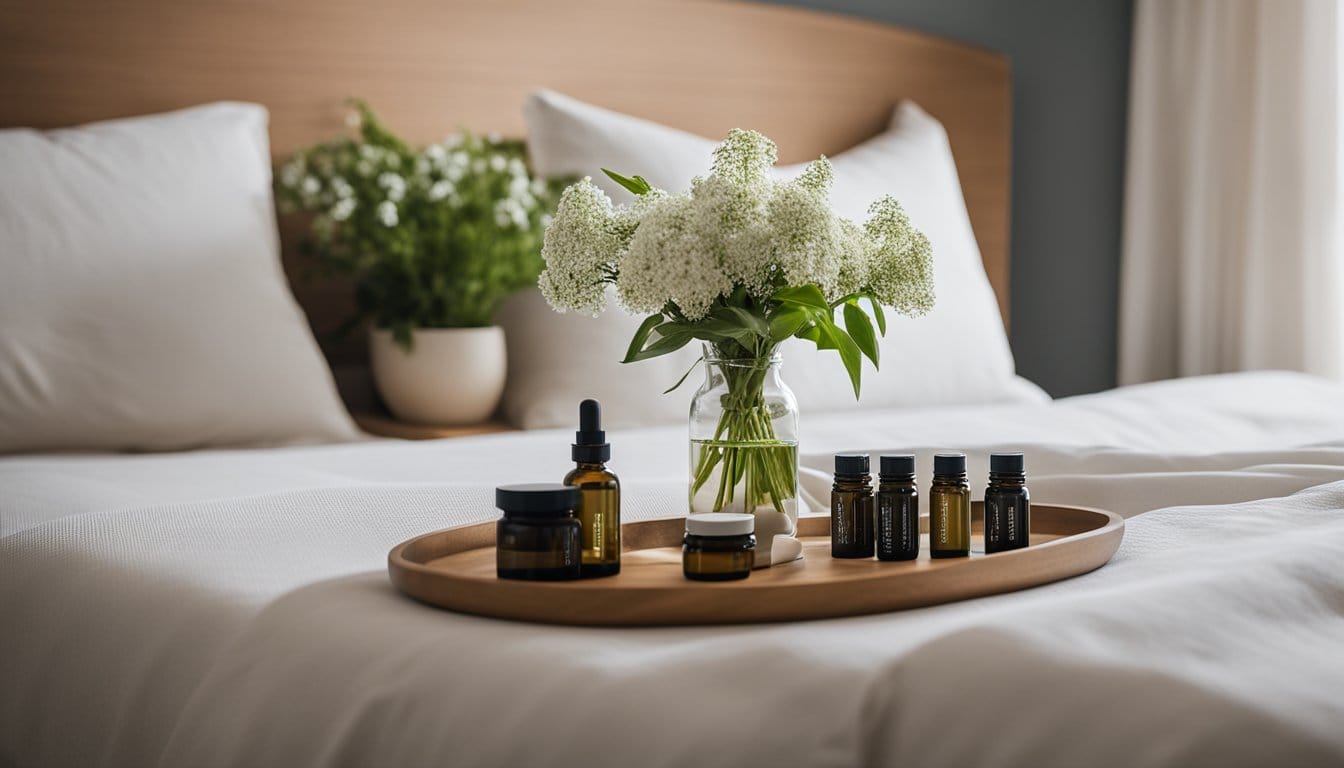Are you struggling to get a good night's sleep? Do you find yourself tossing and turning, unable to find a comfortable position? If you're a woman in perimenopause or beyond, you're not alone. Many women experience sleep disturbances during this time of life, which can be attributed to hormonal changes, hot flashes, and other physical symptoms.
Fortunately, there are strategies you can use to create a sleep sanctuary that promotes restful, rejuvenating sleep. From adjusting your sleep environment to incorporating relaxation techniques, there are many steps you can take to improve your sleep quality.
We'll explore some of the most effective strategies for creating a sleep sanctuary that supports your physical and emotional well-being. Whether you're in perimenopause, menopause, or beyond, these tips can help you get the restful sleep you need to feel your best.
Understanding Perimenopause
If you are like most women, you have heard these terms, "perimenopause, menopause, but not quite grasped the differences of each phase. It can be confusing, trying to keep these terms/ symptoms in perspective. We will go over these definitions here. But if you need a little more depth, we have a few other articles.

During this time, hormonal changes can cause a variety of symptoms that can disrupt sleep, such as hot flashes, night sweats, and mood swings. You might be thinking that this sounds very much like menopause symptoms. Well you are semi correct, think of it as a precursor to the main event.
During this period, your menstruation or as it is commonly called by most a period, it comes and goes in no orderly schedule. Much like my dog that wants to go outside but then comes in after 5 minutes. But why does it do that! it's frustrating. It is controlled by the decline in the production of estrogen and progesterone, two hormones that play a key role in regulating the menstrual cycle. As the body adjusts to these changes, hormone levels can fluctuate, which leads to those frustrating irregular periods.
This phase can last for several years and can be accompanied by a range of symptoms that can disrupt sleep and affect overall well-being. Let's get into the hormone levels lead to inadequate sleep and how to alleviate them.

Another insightful article about menopausal symptoms
Symptoms and Sleep Disruption
The symptoms can vary from woman to woman, but some of the most common include hot flashes, night sweats, mood swings, and difficulty sleeping. Hot flashes and night sweats can cause sudden feelings of warmth and sweating, which can disrupt sleep and lead to fatigue during the day. If you have ever experienced a hot summer night without an air conditioner, you can relate to the feeling of being too hot to sleep. Mood swings and anxiety can also make it difficult to fall asleep or stay asleep. Just as if you have something on your mind that you can't get the thought out of your head so you can rest.

You want to be able to manage these symptoms, it's important to focus on creating a sleep sanctuary that promotes restful sleep. This may include creating a relaxing bedtime routine, avoiding caffeine and alcohol before bed, and creating a comfortable sleep environment with a supportive mattress and pillows. Additionally, practicing relaxation techniques such as deep breathing or meditation can help reduce stress and promote better sleep. Let's explore some of these options.
Creating Your Sleep Sanctuary
Getting a good night's sleep is essential for your overall health and well-being, especially during perimenopause and beyond. By creating a sleep sanctuary, it can help you optimize your sleep environment and improve the quality of your sleep. Here are some tips to help you create your own sleep sanctuary.
Optimizing Your Sleep Environment
Your sleep environment can have a significant impact on the quality of your sleep. Here are some things you can do to optimize your sleep environment. Keep your bedroom cool, quiet, and dark. Use blackout curtains or an eye mask to block out any light that might disturb your sleep. Remove any electronics from your bedroom, including your phone, tablet, and laptop. The blue light emitted by these devices can disrupt your sleep and make it harder to fall asleep.

Invest in a comfortable mattress and pillows that support your body and help you stay cool throughout the night. You can also use a white noise machine or a fan to create a soothing background noise that can help you fall asleep faster and stay asleep longer. Occasionally, some essential oils or calming scents will promote sleep.

The Role of Bedtime Routines
Besides creating an environment meant for sleep. Establishing a bedtime routine can help signal to your body that it's time to wind down and prepare for sleep. Here are some things you can do to create a calming bedtime routine. Set a regular bedtime and wake-up time, even on weekends. This can help regulate your body's natural sleep-wake cycle.
Some women have found it helpful to take a warm bath or shower before bed to help relax your muscles and calm your mind. Some even practice relaxation techniques, such as deep breathing or progressive muscle relaxation. By creating a sleep sanctuary and optimizing your sleep environment, you can improve the quality of your sleep and wake up feeling refreshed and rejuvenated.
Diet and Nutrition
What you eat and drink can have a significant impact on your sleep quality. As difficult as it is at times, especially if you are sleep deprived, avoid consuming caffeine.

Avoid alcohol, spicy food or that bowl of ice-cream before bedtime. Instead, try drinking herbal tea or warm milk to help you relax. Eating foods high in tryptophan, such as turkey, nuts, and seeds, can also help you fall asleep faster.
Exercise and Relaxation Techniques
Regular exercise can improve your sleep quality and reduce stress levels. However, avoid exercising too close to bedtime, as it can make it harder to fall asleep. Instead, try practicing relaxation techniques such as meditation, deep breathing, or yoga. These techniques can help calm your mind and prepare your body for sleep.

Explore how exercise can help you sleep
Supplements and Alternative Therapies
Many women turn to herbal remedies and supplements to address symptoms of perimenopause, but it is important to consult with a healthcare provider before beginning any new regimen.

Schedule a call to go over some of your options.
Some commonly used supplements include black cohosh, evening primrose oil, and red clover. These supplements, can be bought over the counter and have been recorded by many to help alleviate hot flashes, mood swings, and other symptoms of perimenopause. Additionally, some may benefit from taking a magnesium supplement before bed to promote relaxation and improve sleep quality. Some have taken a Melatonin supplement when they were having difficulty falling asleep.
While supplements and herbal remedies can be a helpful addition to a healthy lifestyle, they should not be relied upon as a sole solution. A balanced diet, regular exercise, and stress reduction techniques should also be incorporated into a comprehensive sleep sanctuary plan.
By incorporating these restful strategies and remedies into your daily routine, you can improve your sleep quality and wake up feeling refreshed. Remember, it's essential to consult with your healthcare provider before starting any new supplement or alternative therapy.
Nighty- Night!





